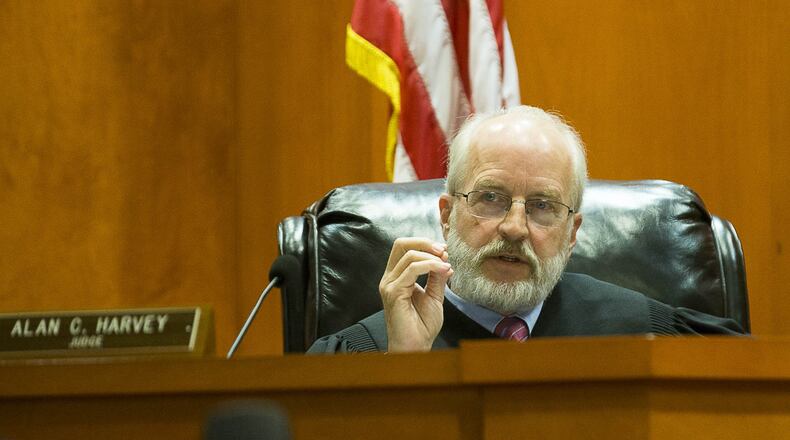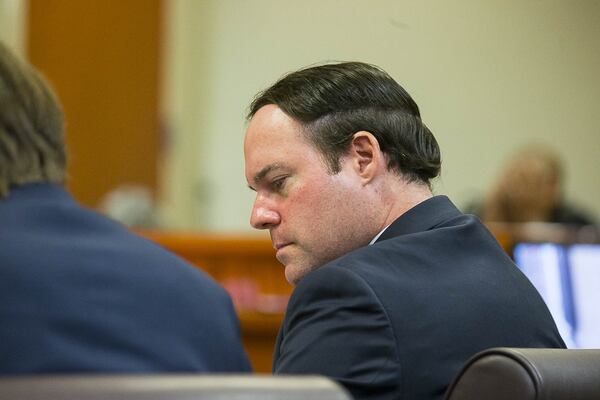A judge cautioned the Georgia Department of Revenue to tread carefully with its plan to penalize Fulton County for freezing property values by asking that tens of millions of dollars in grant funds be withheld.
Revenue Commissioner Lynnette Riley has the right to formally ask the state treasurer to block state and federal grants earmarked for the county, Senior Magistrate Judge Alan C. Harvey said, in an order filed last week. But he urged Riley not to do so.
VIDEO: More on Fulton County
The decision is the latest twist in a ongoing legal battle between the state and Fulton over the county's 2017 decision to freeze most residential property values. Residents had complained about a sudden increase in property values that threatened to dramatically raise their tax bills. In response, the county froze values at 2016 levels.
The state cried foul and said the county's action was illegal. The two sides have been battling for more than a year. County leaders have said that an 1880s law gave them the power to alter the tax digest after residents complained about huge jumps in property values, and county commissioners lost confidence in the system.
Riley is the state’s top tax official and her department must sign off on property digests submitted by Georgia’s 159 counties. She has used her authority to try to get Fulton to reverse course, and acknowledge that leaders made a mistake. Riley has refused to approve Fulton’s 2017 and 2018 tax digests.
Over the summer, she signaled she would exert more pressure by seeking to withhold millions in grants in an effort to force Fulton to submit a new tax digest, without frozen values.
Riley sent Fulton officials a letter saying that she intended to formally ask the state treasurer to deprive Fulton access to somewhere between $23.5 million and $32.9 million in state and federal grant money. The money pays for everything from workforce development and child support enforcement to HIV intervention and violence against women initiatives. The county currently has 31 state grants, and 21 federal grants that flow through the state.
In the letter, Riley said she intended to write to the treasurer in October asking that grants be withheld unless Fulton submitted “a proper county tax digest for 2017 for review as required by state law.” The law says the treasurer shall withhold grants to counties until a tax digest has been submitted.
In his order last week, Harvey, who presides in DeKalb County where the case has been moved, said whether or not Fulton complied with the legal requirements in submitting the tax digest is a pending issue in court, and “the Court cautions that the Revenue Commissioner should not notify the State Treasurer that grants should be withheld and that the State Treasurer should not withhold such grants until the issues before this Court are resolved.”
Harvey also wrote “that the citizens of the State of Georgia and particularly Fulton County will be best served if the Revenue Commissioner does not, at this time, suggest to the State Treasurer that grants be withheld from Fulton County.”
Wednesday, William Gaston, a spokesperson for Riley, said no letter to the treasurer had been drafted. He did not say whether there were any plans to send such a letter.
In court earlier this month, an attorney representing the department, Alex Sponseller, said the letter had originally been delayed until after a scheduled Nov. 13 hearing. Fulton attorneys requested an injunction before that hearing to keep the letter from being sent at all.
In his order, Harvey dismissed Fulton’s request for an injunction. He said Riley was only named in the case in her official capacity, and therefore has sovereign immunity, meaning she cannot be sued for official state actions. But he questioned Riley’s tactics.
“It appears to the Court that had the Legislature wanted grants withheld until the Revenue Commissioner approved a digest, they would have included such wording in” the relevant area of the law, Harvey wrote.
Fulton County spokesperson Jessica Corbitt declined to comment on Harvey’s ruling. In their filings, Fulton County attorneys said Riley was “overstepping her authority” when she planned to send the letter.
They said any reduction in state and federal grant money would “jeopardize essential services provided by Fulton County with State assistance to some of the most vulnerable and underserved residents within County and the State’s population” and would “result in severe and irreparable harm to Fulton County.”
“Without this funding, employees will not be paid, and services will not be rendered,” the filing said.
THE STORY SO FAR
- Previously: In 2017, Fulton County leaders decided to freeze most residential property values at 2016 levels. Residents had complained about huge jumps in their assessments and county commissioners questioned the accuracy of the values.
- The latest: Fulton County has twice gone to court to get a temporary order that lets the tax commissioner collect property taxes while the dispute is ongoing. Additionally, the county filed a request to force the revenue commissioner to approve the tax digest.
- What's next: The threat to withhold grant money came about as a result of that litigation.
About the Author







